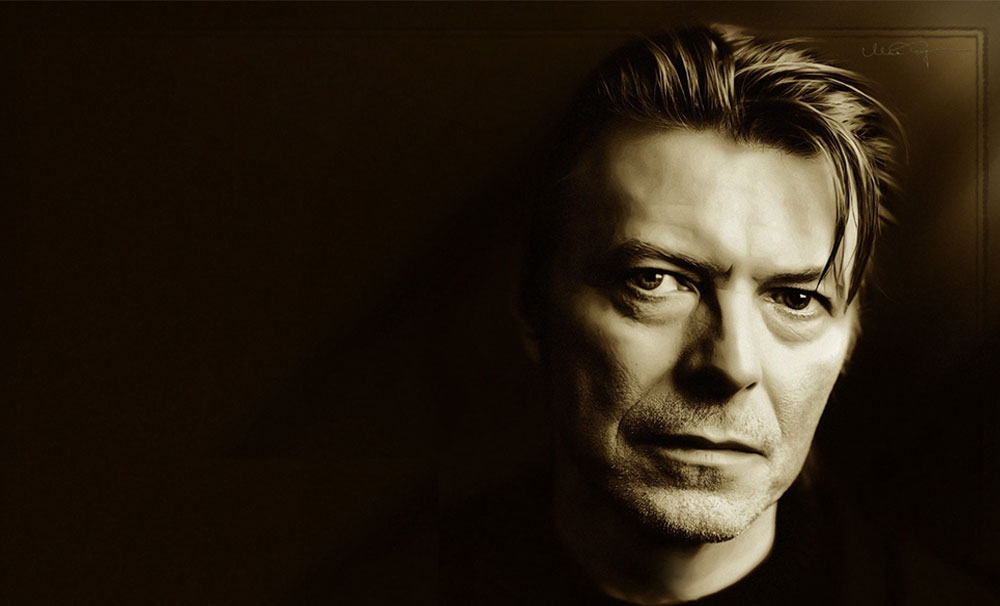The Gourmet Musical publication appears five years after the end of David Jones’ reinvestments. On January 8, 2016, the British musician celebrated his 69th birthday with the appearance of the album Blackstar on the Internet, without showing himself or making statements. Two days later, on January 10, the press announced his death.
With that last act Bowie did what he knew best. What he did with music, literature, philosophy, theater and fashion in his 50-year career: it was projected in the shadow of that black star in the same way that it reinvented the worlds, stories and characters that this book takes up.
While the entire essay attempts to answer why we listen to Bowie, perhaps the strongest answer is just getting started: “Bowie asked the right questions about the strange time he lived through”Rapacioli raises. Listening to him “is also a way of seeing how we got to the 21st century.”
The journalist will present the book today, at 7 p.m., on the publisher’s YouTube channel, together with the writer Fernanda García Lao and the journalist Alfredo Rosso. The playlist of the book can be found at: open.spotify.com/playlist
At the beginning of the book you state: “Bowie managed, like few artists, to transform his fascinations into a sound of the future.” And you position it in its time: second half of the 20th century. Do you think that their sound today is still from the future?
It is still a sound from the future in the sense that it is projected towards an unknown place. An area dominated by enigma. This is what happens in Blackstar, which while it is a work about his own death also works as an artifact of signs that we continue to unravel to this day. Although he spent his time arguing with his time, Bowie did not cease to belong to a culture that today has something of a museum: rock culture. In that sense, at this point, he is a classical artist. Its power for the future, I think, lies in the avant-garde gesture of using and discarding to produce something different.
What is the value of fascination and artifice in Bowie’s work?
Fascination is the most powerful response Bowie found to bond with everything that, from a young age, he wanted to do. In principle, it led him to go through imitation as a way to seek himself artistically (in the first Bowie you can hear Anthony Newley, Bob Dylan, Syd Barrett). But then it is no longer just a medium, but a state of perception. In some way, Bowie needs to be fascinated to create. It is no longer so much the fascination with an object, but the fascination as a place. “Strange fascination, fascinating me,” he says in the initiation Changes. And later, in the subject that is precisely called Fascination, it is more evident: “Every time I feel fascinated, I can’t sit still. I have to use it. “
Do you think that glare, understood as a key to access reality, gave rise to an unusual way of looking at and intervening in reality?
Mark Fisher says that Ballard understood that collage was the great art form of the 20th century and I think the same can be said about Bowie. At the end of the 60s, at a time when he worshiped authenticity and sincerity, he offered masks as a means of expression. Collector of ideas and aesthetics, he set up a poetics of use and discarding that challenged an idea of naturalness so celebrated by culture but also by counterculture (that is why his passage through hippism was so problematic). The artifice, for Bowie, was a conceptual procedure that did not remain in effect, but served him to meditate on the fictional elements that make up the notion of identity.
Does the dazzling you tell that Bowie indulged in artists who fascinated him play in any way in the construction of this essay?
It certainly marked the shape of this essay. In principle, the fascination for the artist himself, someone who, while enigmatic in his concepts, is very clear in his procedure. It can be said that he likes to show his roadmap: his glam gesture, his soul moment, his postpunk stage, his science fiction readings or his philosophical obsessions. At that point, fascination for Bowie becomes fascination for all things that go through him. Because in addition to everything he did, Bowie was a great translator of the works that questioned him. And that marked the pulse of writing.
Did the idea of that “longing for a sensible form of connection” that you distinguish in Bowie set the pulse of this book at all? You wrote much of it while isolated in Italy, unexpectedly and suddenly separated from your affections, in the moments of greatest uncertainty of the COVID-19 pandemic …
After tackling key Bowie themes like dystopia, decadence, alienation, and loneliness, I came to think that he was writing about the present. It was an amazing and paradoxical experience: on the one hand, writing helped me endure those days of uncertainty and confinement; on the other, the catastrophic visions Bowie loved so much became part of my own mental landscape. Fortunately, at some point I found a vanishing point. I also owe that to Bowie, someone who, although dark in his ideas, always finds a way out on the side of fantasy. And we need fantasy to live.
Bowie seems to take on a philosophical and oracular dimension in this essay.
From post-war Brixton to Berlin in the 70s, passing through its “mythical land”, New York, the ruined, marginal settings, transformed by the violence of the world, are fundamental to his poetics. Somehow, the most creative Bowie is the one who thrives on the underground, the outsider. Towards the end of the last century, his reflections turned on the loss of convictions and chaos as the denominator element.. And what better than chaos to think about our days?
Interesting is the value of decadence in Bowie’s kitchen, in that tireless cycle of obsession, exhaustion, crisis and reinvention. Could you tell what that decline meant in his production?
Decadence is key to the imaginaries that Bowie built– The sadness of the world away from Major Tom, the ruinous landscape of Diamond Dogs or crime as Outside art, but unlike his friend Lou Reed, it does not function as a poetic documentation, he uses it to jump into fantasy. That’s why a character like Ziggy Stardust continues to resonate despite his disappearance. Bowie killed Ziggy but was unable to end his escapist illusion.
Could Bowie think of himself as a chronicler of his time from the fantastic, the hidden and the unsaid, what the other can deposit in their silences and darkness?
In an interview, speaking of his admiration for Lou Reed, Bowie says something like that the poet from New York was very concise with what he wanted to say, he did not waste words. He sums it up in a phrase that can be translated as “say what you feel.” Later, speaking of his own style, he refers to the baroque style of his poetry, “the British that there is me”, and he answers: “I will say what I feel, eventually.
There you can see a little Bowie mode: someone who cares to think about reality but always with its reverse side of deception, illusion, artifice and theater. What Bowie wants to say is traversed by misshapen mirrors, masks, and symbols that challenge the idea of reality.
–


